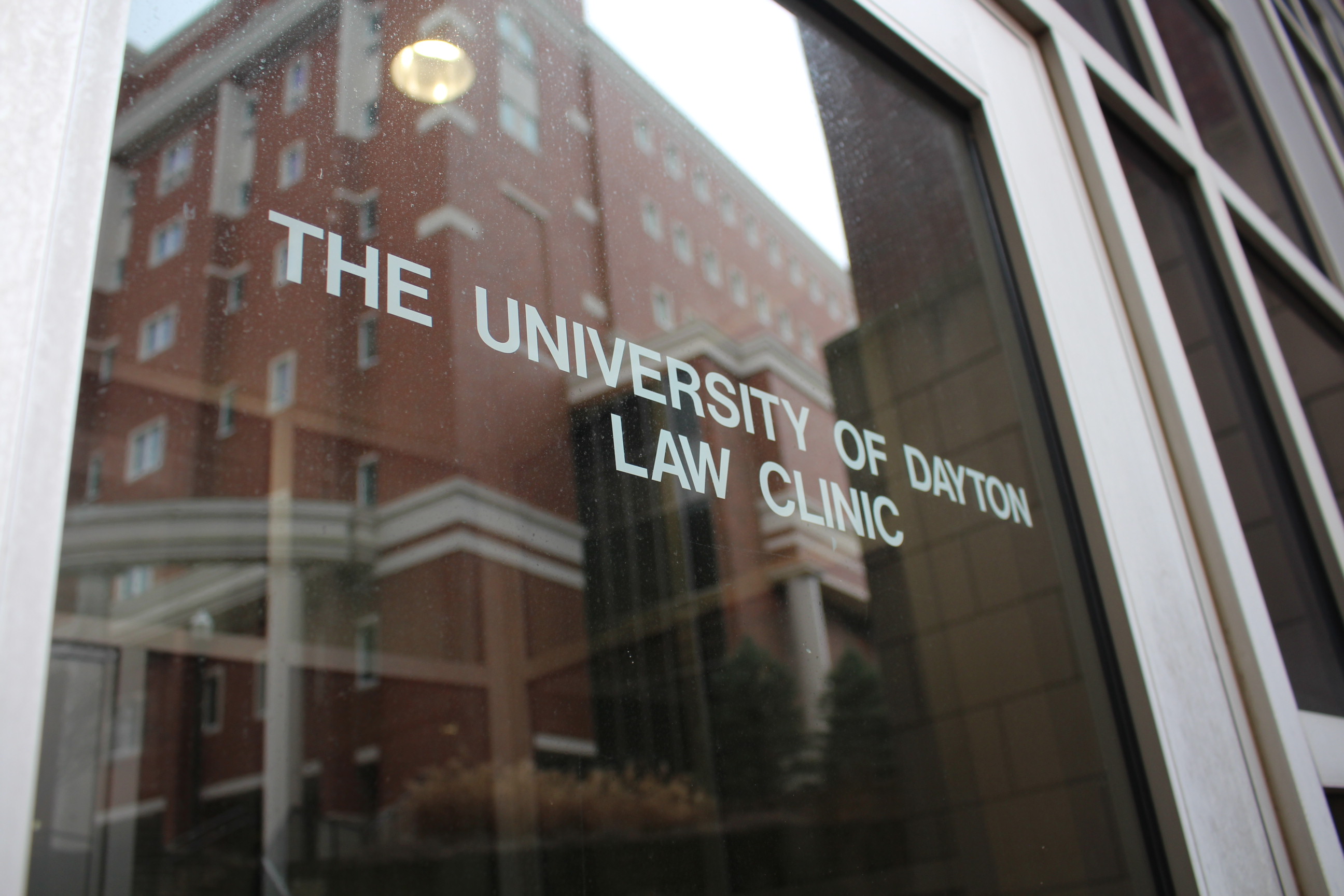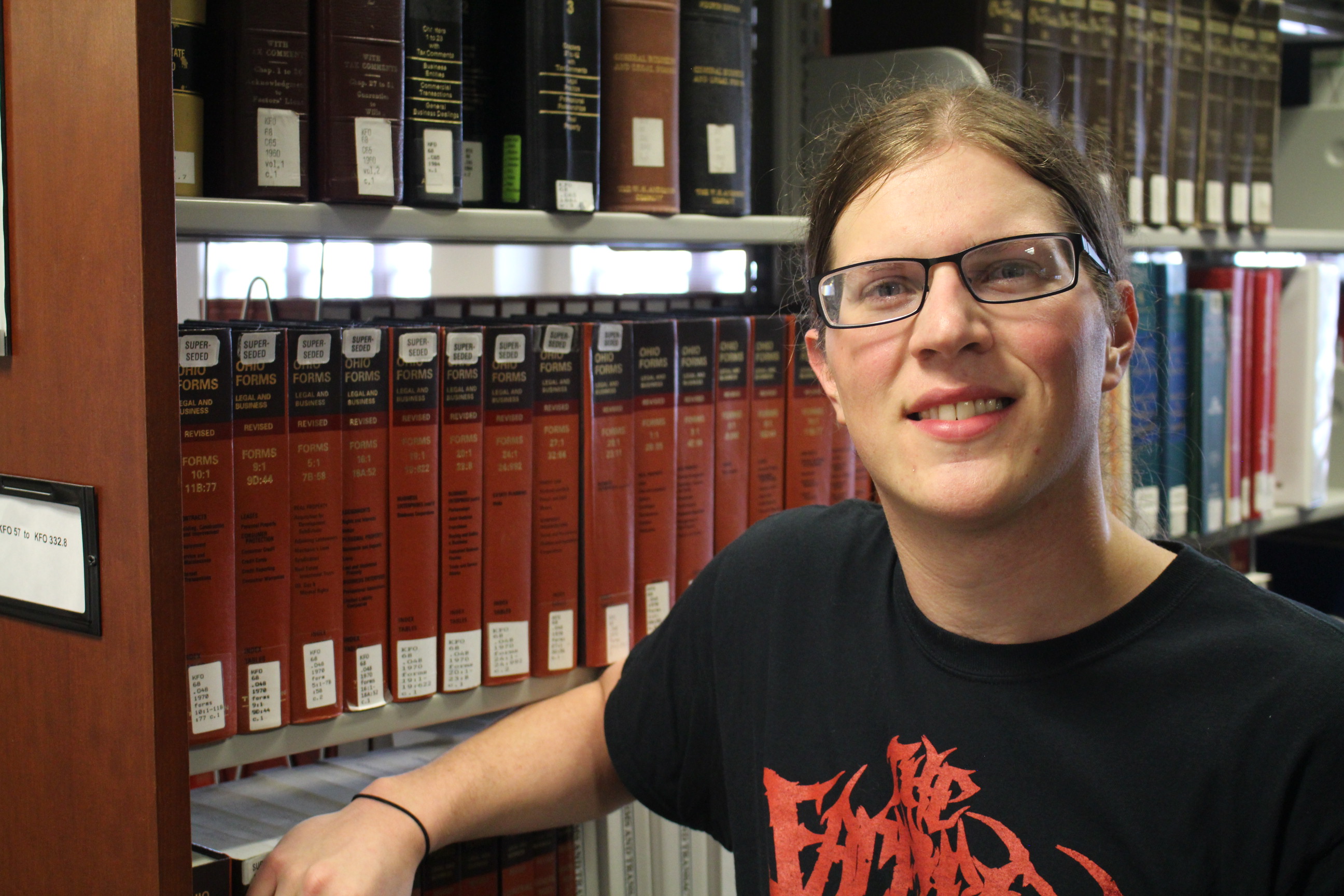Dayton Docket

Thursday February 15, 2018
Putting Your Law School Experience In Motion
Tanner Wall will never forget that call to his client when everything was finally settled.
“I said congratulations, I’m glad we were able to get this done,” Wall remembers. “He said congratulations to you too. I said it’s your life. It’s cool for me the experience of it but it was his future.”
When he entered the University of Dayton School of Law, Wall wasn’t sure if handling a case like the one that led to that memorable call was something he wanted to take on.
“I’m not big on public speaking generally,” Wall says.
Wall decided to attend the School of Law after graduating with an English Literature degree. He thought a law degree offered him a wide-range of options.
“One of the things that attracted me to law is there are so many fields,” Wall says. “I would have a lot of avenues to pursue as my interests changed.”
 Right away, Wall could see the value of what he was learning.
Right away, Wall could see the value of what he was learning.
“We get a lot of practical information,” Wall says. “I think that’s one of the cooler things. I feel like I actually know things, real skills I can take out into the world.”
Wall got the chance to use those skills sooner than he expected when he signed up for the school’s Criminal Law Clinic.
The Criminal Law Clinic is one of four clinics in the law school. In the Criminal Law Clinic students have the opportunity to represent real-life clients from the initial arrest to appeal if necessary.
“The client interaction the students get is wonderful regardless of where they want to practice law,” says Professor Thaddeus Hoffmeister, Director of the Criminal Law Clinic.
Wall says that hands-on experience is one of the reasons the clinic appealed to him.
“One lawyer told me if there’s anything you want to do before you start practicing is get in front of a judge,” Wall says. “Get that first time out of the way.”
One of the clients Wall was representing through the clinic didn’t have a criminal record but was now facing charges.
“He was telling me the story of how the police stopped him and I thought that sounds really suspicious,” Wall remembers. “They really didn’t have any reason to stop him.”
So Wall filed a motion to suppress the evidence the police found after the stop.
“It’s often used but rarely successful,” says Hoffmeister of the motion to suppress.
But in researching cases, Wall felt like he had a strong argument to have that evidence suppressed.
So he wrote his motion and later argued it in front of a judge with a seasoned prosecutor on the other side.
About a month later, Wall’s motion was granted. Without that evidence, the charges against Wall’s client were dropped, leading to Wall’s celebratory call.
“It was pretty exciting, especially knowing how rarely that happens,” Wall says.
Wall says criminal law is now something he would consider doing after law school, but he knows no matter where his career leads him, what he learned representing clients at the clinic will come in handy.
“I thought it was the best experience of law school so far,” Wall says. “You get to take all this stuff we’ve learned and you actually get to meet some people, hear their stories and do your best to help them out.”
Not every student will have the level of success Wall did, but they still leave the clinic with valuable experience.
“The students really enjoy it,” Hoffmeister says. “It’s the culmination of the entire law school experience because everything you learned you get to apply it.”
“I said congratulations, I’m glad we were able to get this done,” Wall remembers. “He said congratulations to you too. I said it’s your life. It’s cool for me the experience of it but it was his future.”
When he entered the University of Dayton School of Law, Wall wasn’t sure if handling a case like the one that led to that memorable call was something he wanted to take on.
“I’m not big on public speaking generally,” Wall says.
Wall decided to attend the School of Law after graduating with an English Literature degree. He thought a law degree offered him a wide-range of options.
“One of the things that attracted me to law is there are so many fields,” Wall says. “I would have a lot of avenues to pursue as my interests changed.”
 Right away, Wall could see the value of what he was learning.
Right away, Wall could see the value of what he was learning.“We get a lot of practical information,” Wall says. “I think that’s one of the cooler things. I feel like I actually know things, real skills I can take out into the world.”
Wall got the chance to use those skills sooner than he expected when he signed up for the school’s Criminal Law Clinic.
The Criminal Law Clinic is one of four clinics in the law school. In the Criminal Law Clinic students have the opportunity to represent real-life clients from the initial arrest to appeal if necessary.
“The client interaction the students get is wonderful regardless of where they want to practice law,” says Professor Thaddeus Hoffmeister, Director of the Criminal Law Clinic.
Wall says that hands-on experience is one of the reasons the clinic appealed to him.
“One lawyer told me if there’s anything you want to do before you start practicing is get in front of a judge,” Wall says. “Get that first time out of the way.”
One of the clients Wall was representing through the clinic didn’t have a criminal record but was now facing charges.
“He was telling me the story of how the police stopped him and I thought that sounds really suspicious,” Wall remembers. “They really didn’t have any reason to stop him.”
So Wall filed a motion to suppress the evidence the police found after the stop.
“It’s often used but rarely successful,” says Hoffmeister of the motion to suppress.
But in researching cases, Wall felt like he had a strong argument to have that evidence suppressed.
So he wrote his motion and later argued it in front of a judge with a seasoned prosecutor on the other side.
About a month later, Wall’s motion was granted. Without that evidence, the charges against Wall’s client were dropped, leading to Wall’s celebratory call.
“It was pretty exciting, especially knowing how rarely that happens,” Wall says.
Wall says criminal law is now something he would consider doing after law school, but he knows no matter where his career leads him, what he learned representing clients at the clinic will come in handy.
“I thought it was the best experience of law school so far,” Wall says. “You get to take all this stuff we’ve learned and you actually get to meet some people, hear their stories and do your best to help them out.”
Not every student will have the level of success Wall did, but they still leave the clinic with valuable experience.
“The students really enjoy it,” Hoffmeister says. “It’s the culmination of the entire law school experience because everything you learned you get to apply it.”
Share
Topics
